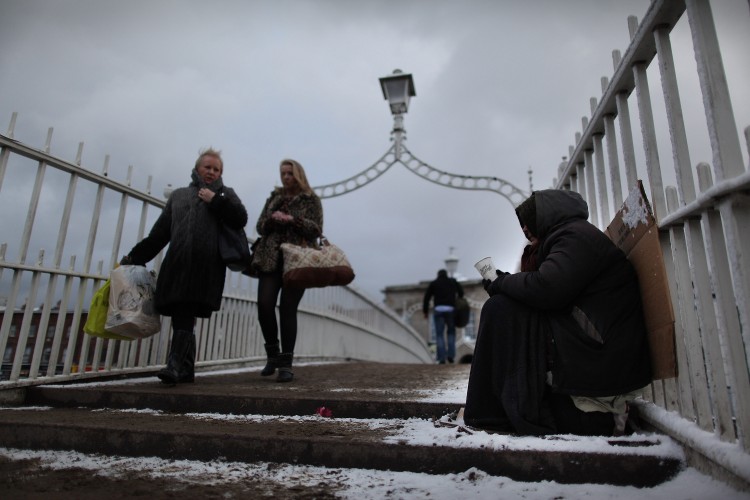Dee Courtney
Staff Writer
It seems that Dublin people universally acknowledge that homelessness is one of Dublin’s biggest problems, but the discourse around the issue outside the incredible charities who work with the homeless is bigoted and uncaring. Dublin-based food critic and offender extraordinaire Niall Harbison wrote an article earlier this year lamenting Dublin’s wasted potential as a cool, welcoming city, saying that people visiting Dublin from outside consistently have their experience ruined by begging. He suggested that we need to clear the methadone clinics and social housing out of the city centre, because the homeless and impoverished population are ruining Dublin’s vibes and scaring tourists away.
This is what cities like Paris and Stockholm have done; they export their homeless problem out into suburbs where no-one can see it, and then it is quickly forgotten. It’s telling that Harbo’s ‘solution’ to the issue focused on rich people’s perspectives rather than poor people’s human rights. Shipping addiction and poverty out of the city centre doesn’t make fewer people homeless, it just makes them invisible to those who have the power to change their conditions in a society where they are already ignored. And yet Harbo’s attitudes are reflected in the comments and all over Irish media.
It’s even more telling that another of Harbo’s bright ideas – and something I’ve seen suggested by more than a few people – is that the Gardaí have too light a touch when it comes to begging. As if the solution to the problem is to treat begging like an actual crime. If homelessness is a crime, surely the only victim is the person forced to live without basic human needs fulfilled and the perpetrator is the state that refuses to provide adequate care for them?
Treating the homeless like criminals, which is something that happens under current policy, does nothing to address the problems actually related to homelessness. The percentage of homeless people who suffer from mental illness is unknown, but it is disproportionate; severe mental illness is one of the main issues people face when working with housing. And services are incredibly hard to access. Why are we more worried about a potential decrease in the Temple Bar’s turnover than the fact that almost 4,000 people in Ireland have no permanent residence?
This means that the homelessness itself is never the issue people want to talk about. When anti-homeless features fill cities, when winters are bitterly cold, when the police are allowed by law to force people to move from where they’re sleeping when they have nowhere else to go, we are in crisis. But to the good, charitable people of Dublin, the real crisis is that our restaurants and shops are losing out because of the person standing outside.
A few weeks ago I was standing at the bus stop and a woman asked me for change. I told her I didn’t have anything and she told me to have a good night, moving onto the person standing next to me. As soon as she was gone, that woman turned to me and rolled her eyes, openly saying ‘I’m sure she’ll ask everyone at the stop!’ This is the issue with how Dublin people treat the homeless. Not only do they not want to help, but they want the problem to disappear.
Irish people are the most charitable in Europe, ranking third in the world in 2010, but somehow being confronted with a problem we know is on our doorstep makes us resentful. Irish people want to be able to walk past a person sitting on the street without being spoken to because they don’t want to help, but they also don’t want to feel as if they aren’t helping.
I walked past two other homeless people that night, who both asked me for change. I told both no. One said goodnight and the other thanked me for answering. This is overwhelmingly my experience with the homeless; they aren’t threatening or rude, they don’t attack or abuse you. They just ask for help.
For someone to say thank you just for being acknowledged is incredible; it either shows that being acknowledged is the exception, or that Dublin’s homeless population is extraordinarily compassionate. When people complain about the very, very small minority of homeless people who are aggressive and loud, it becomes clear that what we’re used to is silence, maybe a cardboard sign, something we can easily ignore.
The fact that people seem to prefer one kind of homeless person over another shows that their first thought when confronted by the issue isn’t the effect on that person – it’s how to avoid the situation. I greatly admire the people who work to get people into housing and open up access to support, and I am amazed by the resilience of people who live without everything most people in Dublin take for granted. It’s a disgrace that people are begrudged simply for wanting to be acknowledged.






